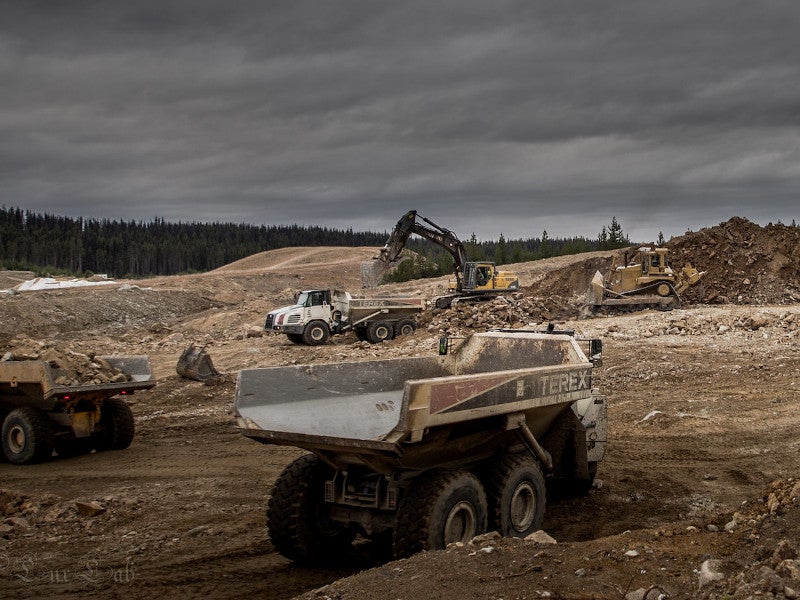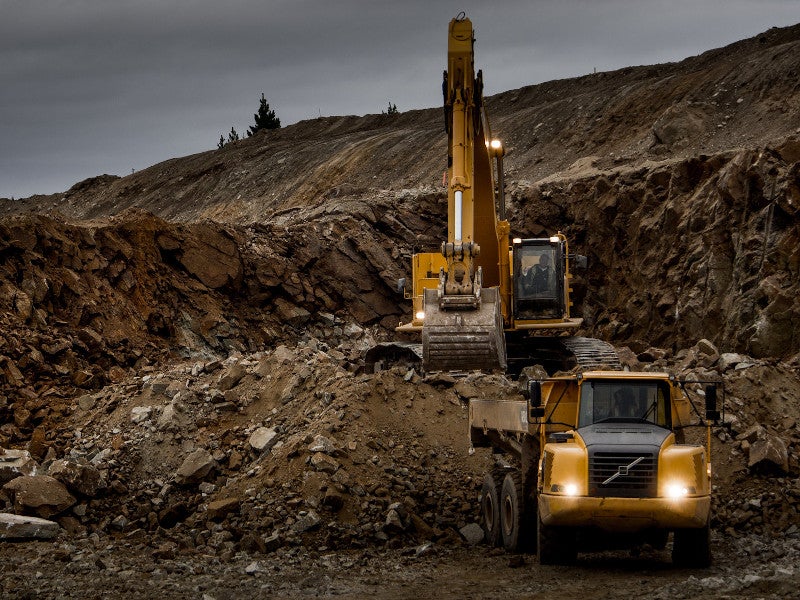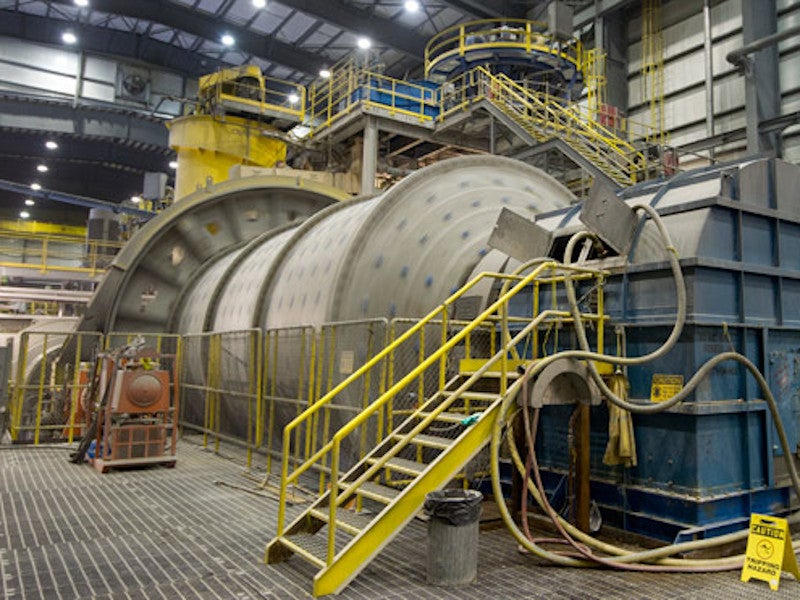The Elk gold project is a historical high-grade gold mine located in the Merritt area of British Columbia, Canada. It is being redeveloped by Gold Mountain, which became the 100% owner of the project by acquiring Bayshore Minerals in September 2020.
The preliminary economic assessment (PEA) for the project was completed in the same month, while Gold Mountain received permission from the Ministry of Mines to start construction works on the project in April 2021.
The company plans to start delivering ore from the mine to its ore purchase partner New Gold in the fourth quarter of 2021.
With an estimated capital investment of approximately $44m, the Elk gold project is expected to produce up to 55,000 ounces (oz) of gold annually over an estimated mine life of 10 years.
Location, geology, and mineralisation
The Elk gold project is located midway between the cities of Merritt and West Kelowna, approximately 325km northeast of Vancouver and 55 km west of Okanagan Lake, in south-central British Columbia (BC), Canada.
Situated within the Similkameen mining district, the property comprises 27 contiguous mineral claims and a mining lease covering a total area of approximately 16,566 ha.
The Elk gold deposit is characterised as a mesothermal, intrusive gold vein system with gold mineralisation occurring within structurally controlled pyritic quartz veins along the discontinuity between the Nicola volcanic group and the Osprey Lake Batholith.
Gold reserves
The Elk project was estimated to contain 454,000 gold equivalent ounces of measured and indicated resources and 95,000 gold equivalent ounces of inferred resources as of July 2020.
Mining and ore processing
The conventional open-pit mining method involving drill-blast-load-haul operations will be employed at the Elk gold project.
The mining equipment will comprise an owner-operated and rental-leased fleet of mobile mining equipment, including two 250mm diameter blasthole drills, one 5m3 front shovel, two 10m3 front shovels, nine 136r haul trucks, two 4 m wide blade track dozers, one 3.8m blade rubber tire dozer, one motor grader, and one water truck.
The extracted mineralised material will be placed on a limestone-capped stockpile pad, where it will be sampled and assayed for metal accounting before being shipped via highway dump trucks to a mineral processing plant at New Gold’s New Afton mine, while the non-mineralised rock will be sent to a rock management storage facility (RMSF) located west of the open-pit.
The ore production capacity during the initial three years of operation will be 70,000 tonnes per annum (tpa) which is expected to be ramped up to 324,000tpa in the fourth year.
A 900 tonnes per day (tpd) processing facility housing a 75t/h two-stage crushing plant, a single ball mill, a gravity concentrator, and rougher/cleaner flotation circuits is also envisioned for onsite concentrate production from the fourth year onwards.
Ore purchase agreement
Gold Mountain entered into a three-year ore purchase agreement with New Gold to deliver 70,000t of ore per annum from the Elk mine. The ore will be processed at New Gold’s New Afton gold mine situated approximately 130km away from the Elk gold project, in Kamloops, British Columbia.
Contractors involved
Nhwelmen-Lake was awarded the mining services contract for the Elk gold project in January 2021. Its scope of work includes the mobilisation of mining equipment, as well as the construction of roads, site offices, support facilities, as well as the upgrading of the existing water management system.
JDS Energy & Mining was engaged to complete the pre-feasibility study for the project in February 2021.
Elk gold project background
Although the prospecting activities in the area date back to the early 1900s, Fairfield produced approximately 51,500 ounces (oz) of gold from a bulk sample open-pit between 1992 and 1995.
Almaden Resources merged with Fairfield to form Almaden Minerals in 2002 which continued exploration activities in the area until late 2010 before Beanstalk Capital (BCI) acquired the property in 2011. BCI, which later changed its name to GMMC carried out a bulk sample mining operation between 2012 and 2014.
GMMC became a wholly-owned subsidiary of JDL Gold in October 2016, which subsequently merged with Luna Gold in March 2017 and changed its name to Trek Mining. Trek merged with NewCastle Gold and Anfield Gold in December 2017 and changed its name to Equinox Gold Corporation. (Equinox), while Bayshore acquired GMMC from Equinox in May 2019.





